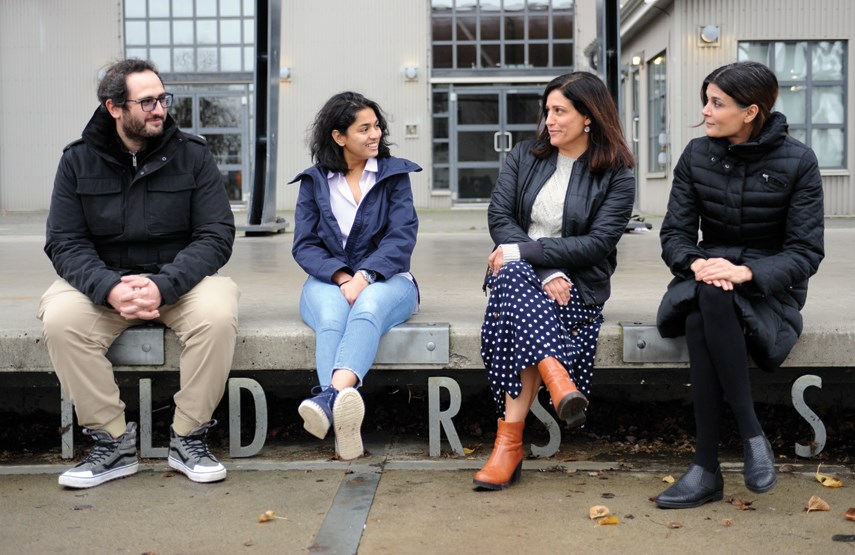There’s a crisis in the community but a badge and a gun may not be the right tools for the job.
The North Shore now has its first-ever mental health crisis outreach team that is entirely civilian based.
The Canadian Mental Health Association’s North Vancouver and West Vancouver branch launched the Peer Assisted Care Team, or PACT, earlier this month.
“Some people are apprehensive about calling 911, so we would offer an alternative for them,” said Julie Kaisla, executive director of CMHA on the North Shore. “This is a civilian response, so it's accessible to people, and it's safe, and it’s trauma-informed, and it's really about building a human connection."
By calling 1-888-261-7228 or texting 778-839-1831, anyone over the age of 13 on the North Shore can get over-the-phone or in-person help with a range of mental health issues including suicidal thoughts and despair, substance use disorders or family strife.
Each call will include access to a mental health professional, such as a social worker or other clinician, along with a peer worker – someone with personal experience with the type of crisis their subject is going through. Together, they can help de-escalate a difficult situation.
“They often want someone to just listen and to be with them and to help them navigate some different options. And maybe the emergency room isn't the only option,” Kaisla said “People have been gracious and so thankful that they're not alone in this process.”
Everyone on the PACT staff has been trained to offer culturally appropriate help with knowledge of intergenerational trauma, especially for Indigenous communities. Before launching the North Shore PACT, Kaisla said they worked the Sḵwx̱wú7mesh Úxwumixw (Squamish Nation) and səlilwətaɬ (Tsleil-Waututh Nation), as well as people with lived experience, the North Vancouver RCMP and West Vancouver Police Department, municipal council members and researchers.
Kaisla said a shift toward more community-based mental health response has been happening across North America, with a big impetus being high-profile incidents of police wellness checks ending in injury or death for the person in crisis. In 2020, City of North Vancouver council started a process to find a civilian-based alternative to police wellness checks, although the CMHA’s program is independent of that.
For years, police have been the default first responders for mental health calls but Kaisla said the North Shore’s two police agencies have been supportive of PACT’s arrival.
“I think they are recognizing that there are limits to what they can do to meaningfully respond to families in crisis and they see this as a very valuable service,” she said. “They often leave a family that's very traumatized and in crisis, and our supports can come in as a follow up.”
Before they send their PACT members, CMHA will always first screen for any signs of danger. Any call where there is an imminent risk of harm or violence should still be sent to 911.
The service is available from 6 p.m. until midnight, Thursday to Sunday, but Kaisla said she hopes to see that expand as more people became familiar with PACT as an option available to them. CMHA has raised enough funding to keep the program going for a year.
“Hopefully within that time, we can show that this is a service that community wants and is using,” Kaisla said.
The service is currently available in English and Farsi.
“I think it's such an opportunity to transform crisis care across the province and the country. I would love to see us really lean in and listen to communities, and vulnerable communities, and marginalized communities about what they need,” Kaisla said.
PACT can be reached by calling 1-888-261-7228 or texting 778-839-1831 or found online at northshorepact.com



